
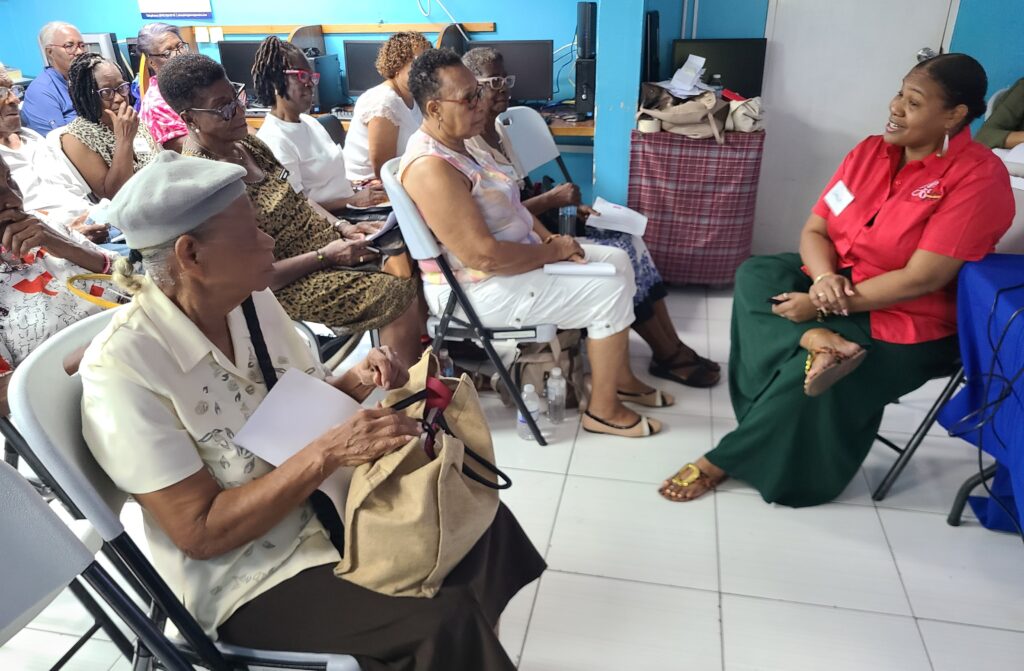
Senior citizens across Jamaica are gaining vital tools to recognise and respond to gender-based violence (GBV).
This is being done through a series of workshops under the WE-Talk for the Reduction of Gender-Based Violence Project, led by WMW Jamaica.
These sessions are designed to engage older adults, an often-overlooked demographic in public education campaigns, by increasing their understanding of GBV, encouraging intervention, and fostering safer communities.
Held across the parishes of St Catherine, Hanover, Clarendon, St. Ann, Trelawny, Portland, St. Elizabeth, and Kingston, the workshops have introduced seniors to new concepts, practical strategies, and the critical role they can play in challenging harmful norms.
A recent session at the National Council for Senior Citizens office in Kingston was part of this ongoing island-wide effort. Participants explored the roots of gender-based violence, the forms it can take—emotional, physical, financial—and the link between power and violence.
Zebo Vassell, a male participant, described the experience as mind-opening.
“Today’s session was very important because it opened my mind to the different forms of gender-based violence and how we could address these issues,” he said. “We need this kind of training to guide our thinking so we know how to respond in a more respectful and peaceful way.”
He continued, “For example, if you and your partner have an issue, you should be able to sit down together, talk, and work it out rather than disrespecting each other. We should start building a better image of respect between men and women.”
The session also unpacked how the presence or absence of power in someone’s life can influence whether they become a victim or perpetrator of abuse. Through role-play activities, participants simulated real-life scenarios and explored how gender stereotypes and power dynamics often play out in everyday situations.
Pegeloria Morris said one of the most important takeaways for her was understanding the concept of consent.
“I learned that saying ‘no’ is your right and your spouse should understand and respect that,” she said. “People need to know that abuse is not normal, and if they see it, they should report it.”
Junior Dunn, another male participant, was surprised to learn that economic abuse is considered a form of GBV.
“I didn’t know that withholding money from your partner is a kind of domestic abuse,” he said. “These sessions help us become more aware, and if someone we know is going through it, we can guide them to where they can get help.”
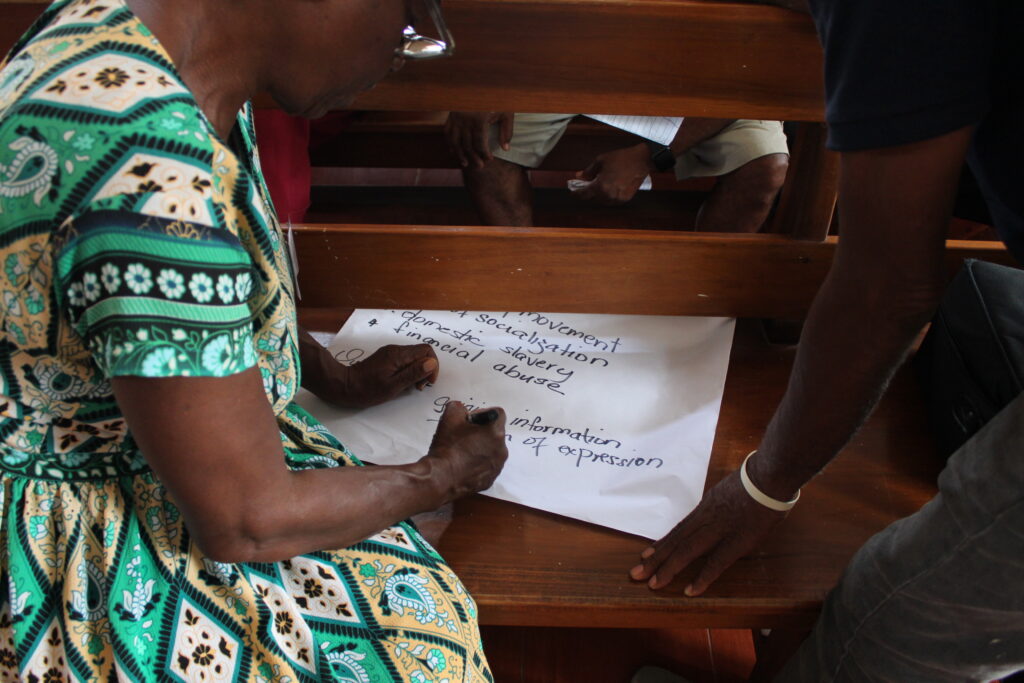
To further provoke critical thinking, one exercise used common household items, like a broom and a rake, to ask participants which they thought were “male” or “female.” These seemingly simple objects sparked deep discussions about how gender roles are assigned and internalised in ways that can support unequal treatment.
Workshop facilitator Shawna-Kae Burns explained why these exercises are so important.
“Even when we think we know the issues, it’s always powerful to break them down,” she said. “Jamaica still has that ‘cockroach nuh business inna fowl fight’ culture where people avoid interfering in domestic disputes. But we can’t stay silent anymore. These sessions help people see how they might unknowingly perpetuate harmful norms and give them the tools to change that.”
For other participants, the session served as a reminder to stay connected to evolving social issues.
“As we age, we might not always pay attention to what’s going on,” said Rosewell McKenzie. “But this session reminded me to stay informed and smart because we can’t afford to ignore these things.”
The value of these workshops extends beyond the room, as many seniors leave with a sense of duty to share what they’ve learned. Florence Jackson, who attended a session in Portland, emphasised this ripple effect.
“Initiatives like this help not just our group, but also allow us to go back to our communities and share what we’ve learned. Awareness shouldn’t be limited to select groups; everyone needs access to this knowledge,” she said.
Ruth Howard, programme manager at WMW Jamaica, was notably pleased with the outcome, stressed the importance of engaging older Jamaicans in GBV prevention.
“At the start, the data showed that very few GBV initiatives were targeting persons over 60, yet they also experience abuse,” she explained. “Critically, they’re also community leaders – matriarchs, patriarchs – people others listen to. Giving them information helps protect them and empowers them to protect others.”
She added, “You’re never too old to learn, and certainly never too old to become an agent of change.”
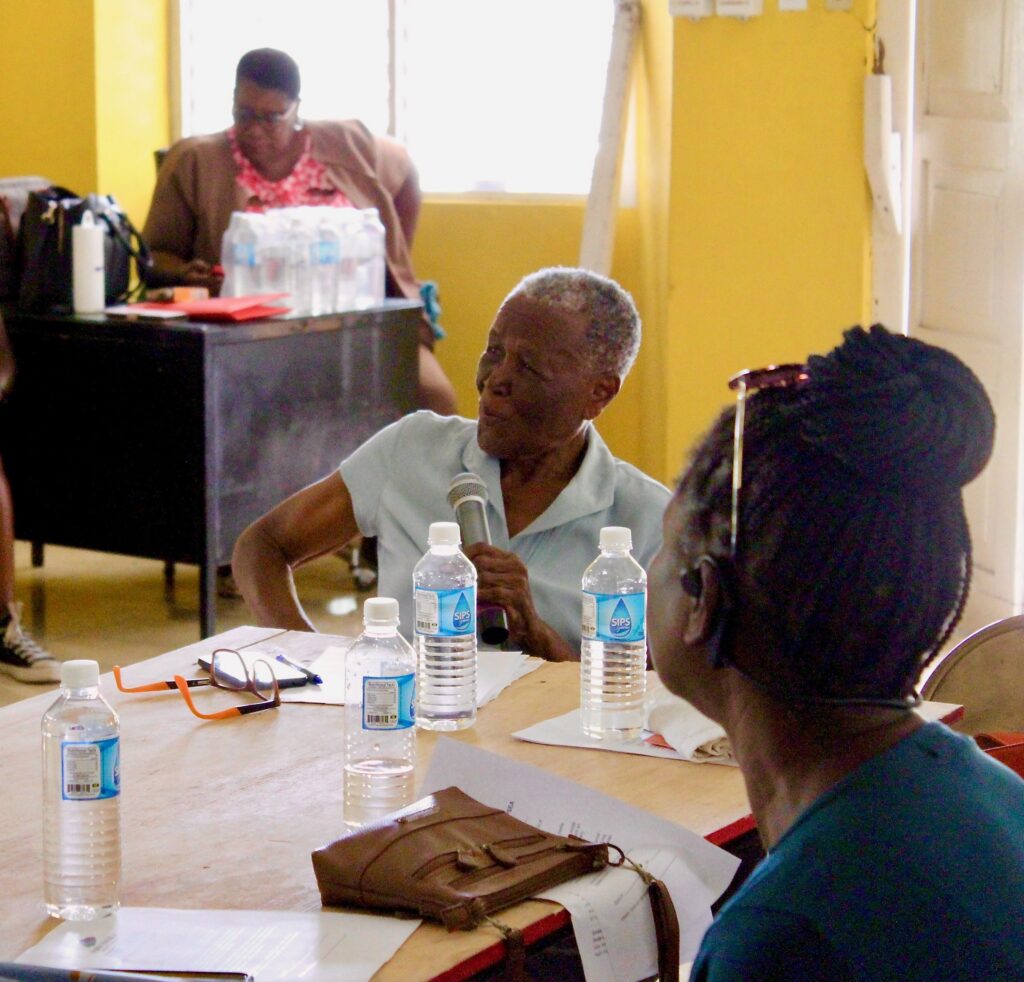
The WE-Talk Project, funded by Global Affairs Canada and Oxfam Canada, is dedicated to combating GBV through comprehensive public education, community mobilisation, and capacity building. A core component of the project is promoting early intervention to prevent violence from escalating.
The initiative also includes the WE-Talk FACTSS (Fostering A Culture Towards Safety and Support) campaign. This awareness-raising drive actively works to dispel myths surrounding GBV and foster a nationwide culture of safety, and proactive action to build a more informed and responsive society, moving closer to a future free from gender-based violence.

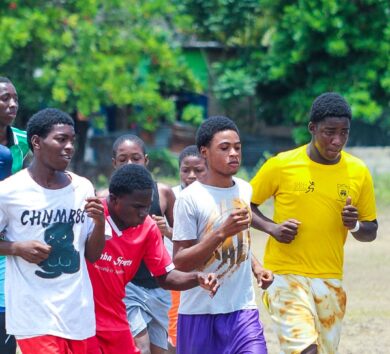
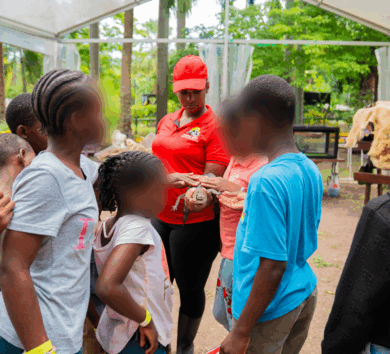
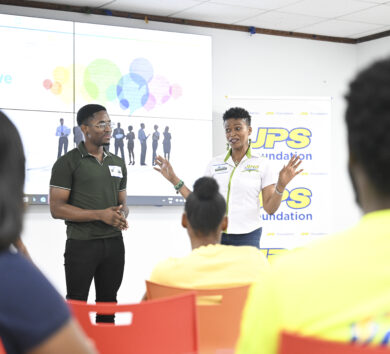
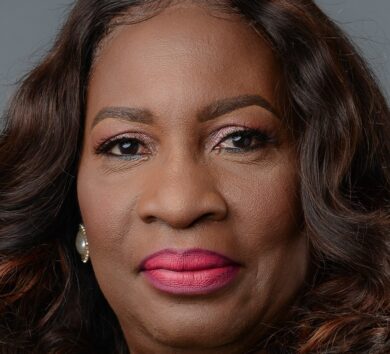
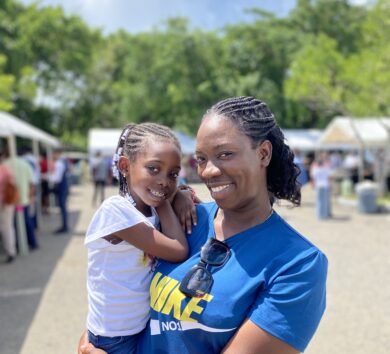

Comments